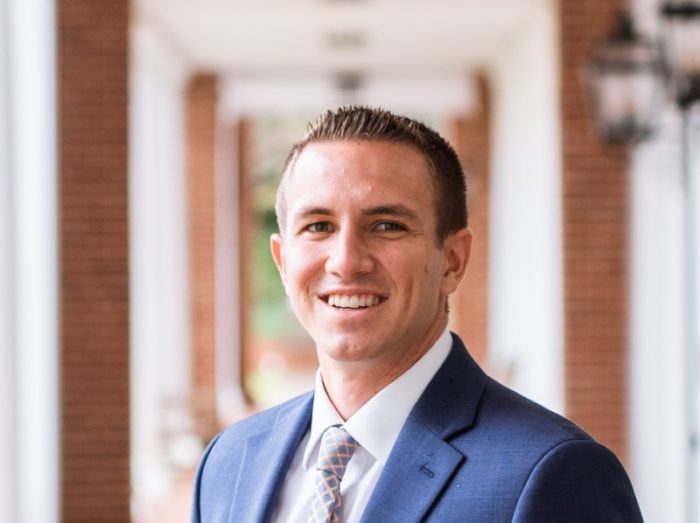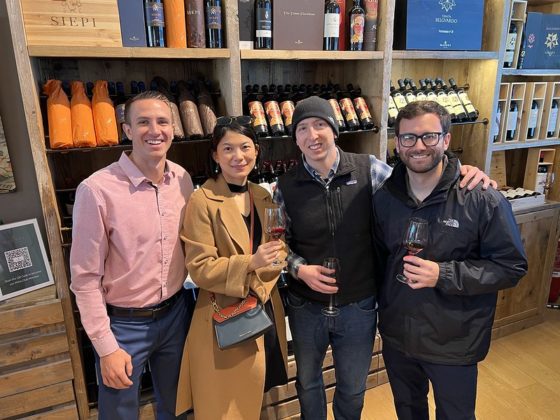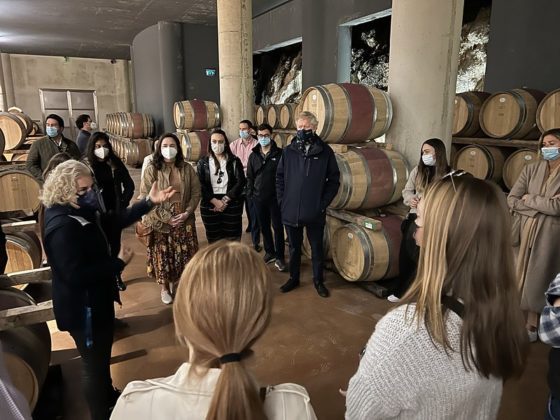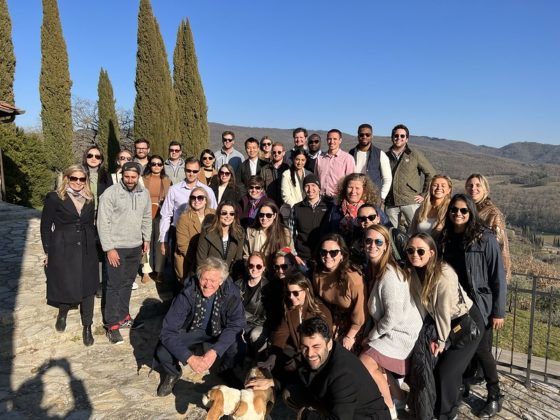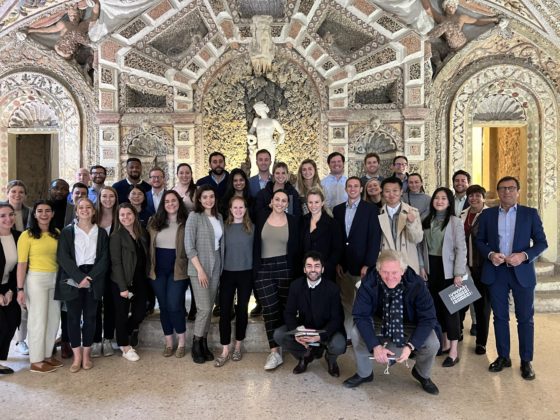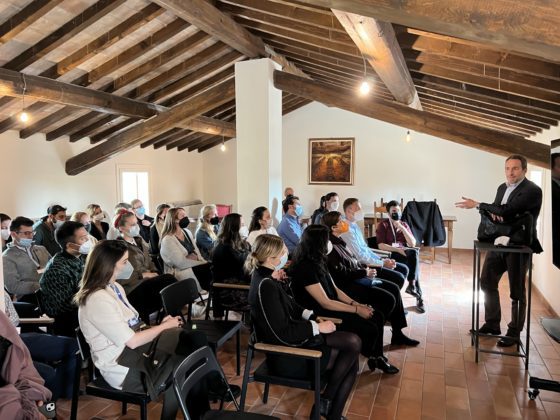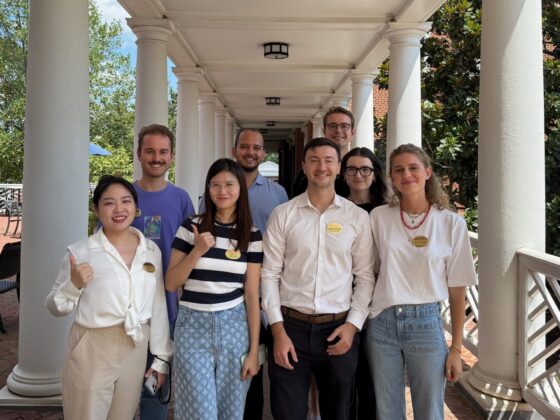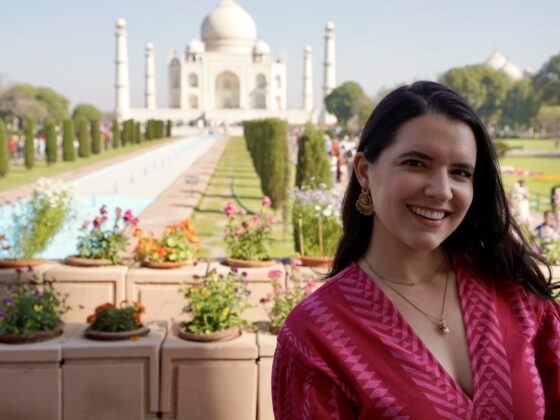Jake Berlin (Class of ’22) is a second year Darden MBA student focused on corporate strategy. Last summer, Jake completed an internship at Johnson & Johnson, where he worked as a Summer Marketing Associate. After graduating, Jake will be joining 3M, in their Strategy and Marketing Development (SMD) department. Jake recently completed a weeklong Darden Worldwide Course focused on Luxury and Exports in Italy and offered some reflections on his experience.
Jake, tell us a little about yourself. Why did you choose the Italy Worldwide Course?
I’m a Utah native, and I come from a big family with one younger sister and five (yes five) younger brothers. I attended BYU for my undergrad where I majored in Political Science. I added a business minor and that led to me working at the intersection of government and business doing economic development for four years prior to Darden. I also spent two years living abroad in Chile as a service missionary. I love to travel, and I’ve been reading history books for fun since elementary school, but the only time I’d ever been to Europe before the Italy DWC was when I was five. I felt like this would be a great opportunity to go back to the continent and tour some really fascinating companies. The food was also a huge draw for me, and I couldn’t think of a better way to experience Italy than to go with a native Italian – especially one as delightful as Prof. Luca Cian!
This course, entitled “Luxury and Exports in Italy”, was unique in that it focused less on objective values of products and more on brand awareness. What, if any, unexpected insight did you gain from these experiences?
I went into this course assuming that luxury products must be of a clearly superior quality in order to justify their high price points. As we pulled back the curtain on many luxury goods manufacturers, I learned that the quality differences between premium and luxury products are oftentimes very minimal, yet luxury brands can command tremendous premiums. This is due to the strength of the brand itself and not just strength of the products. The products themselves have to be top notch, but that alone is insufficient. All of this feeds into one of my key takeaways for the course: luxury isn’t rational. Instead, luxury goods are all about appealing to consumers’ emotions.
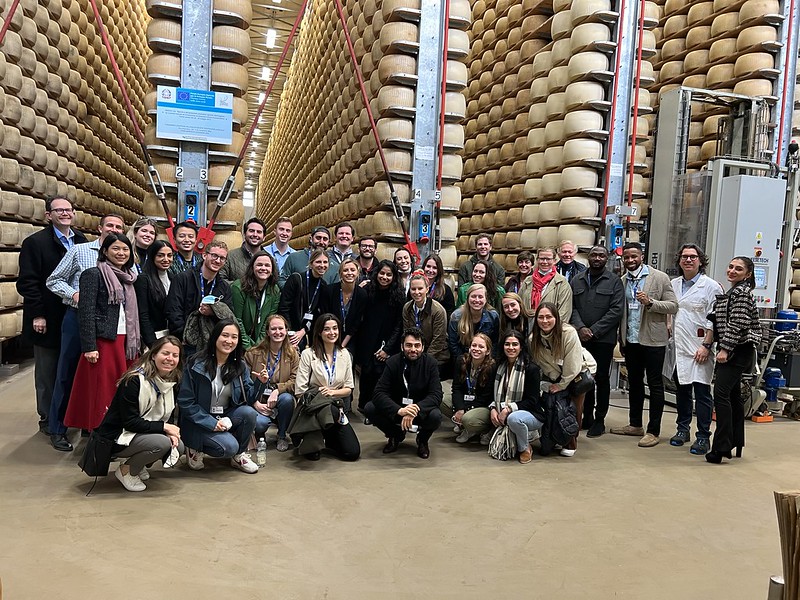
How important is story-telling in building luxury brands?
Storytelling is critically important to building luxury brands because it’s through story telling that companies can appeal to the emotions of their consumers. Storytelling allows brands to move beyond meeting just the basic functional needs of consumers and instead allows them to address higher-level emotional and social “needs” that are typical of refined consumers. The luxury goods companies that we toured are fantastic at telling compelling stories. For instance, Claudio Stefani, CEO of Acetaia Giusti, told us that at the end of the day he’s not just selling balsamic vinegar. He’s selling a story about a family that’s been making high quality balsamic vinegar in the same house, with the same process, with even some of the same barrels, for over 400 years. He’s selling a story about how that family obtained the seal of approval to supply the King of Italy with balsamic vinegar. He’s selling a story about 17 medals won at various international competitions demonstrating sustained excellence over decades. The product itself is important – it has to be top quality – but nowadays there are lots of high-quality products and what truly differentiates the most successful luxury goods companies is their ability to tell a story.
What is special about Italy and why is it the home to these global luxury brands?
Italy has a long and proud history that stretches back to Roman times and continues through the Medieval and Renaissance periods. When you go Italy, particularly a place like Florence, this history is all around you and is embodied in the beautiful art and architecture of the city itself. This history lends itself to the storytelling and brand building that is so essential for luxury brands. The pride in craftmanship and art of storytelling has been passed down from generation to generation by many of the family-owned companies that are a hallmark of Italian business. These companies are facing tremendous pressure from global competitors that can leverage automation and economies of scale to achieve greater manufacturing efficiency, but ultimately, I think it’s the art of storytelling that’s allowed many of these luxury brands in Italy to survive and thrive.
Beyond the direct learning atmosphere, how did your experience differ from your time at Darden?
The Italy DWC was one of the highlights of my Darden experience. I developed much deeper relationships with my classmates and got to know many of them in a way that wouldn’t have been possible in a typical classroom setting. We had great conversations over delicious dinners, and we enjoyed hunting out the best gelato spots in Florence and Bologna. I also learned a tremendous amount about politics, education, and business in Italy just through informal conversations we had in the back of bus with Luca between company visits. There’s no way I could have had that amount of face time with Dean Beardsley and Luca in the traditional Darden setting. Overall, the Italy DWC was a fantastic experience that was both fun and educational, and I can’t wait to go back!

